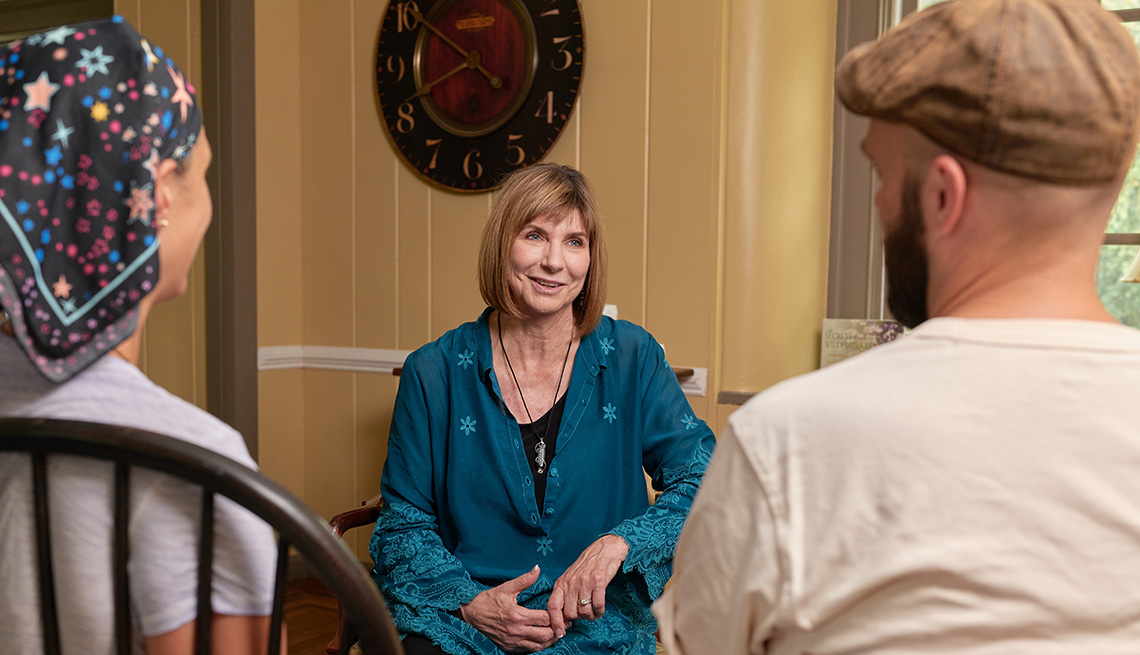As end-of-life care becomes more holistic and family-centered, many people are hearing about both death doulas and hospice social workers—two essential roles that provide meaningful support during the final stages of life. While these professionals may work side by side, their responsibilities, training, and approaches are distinct.
In this blog post, we’ll explore the difference between a death doula and a hospice social worker, so you can better understand how each supports individuals and families—and how they complement one another.
What Is a Death Doula?
A death doula (also known as an end-of-life doula) is a non-medical professional trained to offer emotional, spiritual, and practical support to those nearing the end of life, as well as to their loved ones.
Common services provided by death doulas include:
- Creating a calming presence at the bedside
- Advance care planning and legacy projects
- Support for spiritual rituals or cultural traditions
- Holding space for difficult conversations
- Helping families prepare for what to expect
- Post-death emotional support and grief guidance
Death doulas do not perform clinical tasks and are usually hired privately by families. They provide personalized, continuous presence that often extends beyond what a hospice team can offer due to staffing limitations.
What Is a Hospice Social Worker?
A hospice social worker is a licensed medical professional who is part of a hospice or palliative care team. Their role is defined by federal regulations and funded by Medicare or private insurance.
Hospice social workers help with:
- Psychosocial assessments and emotional support
- Counseling for patients and families
- Coordinating care with doctors, nurses, and chaplains
- Facilitating advance directives or DNR orders
- Navigating insurance, funeral planning, and legal documents
- Referring families to community resources and grief counseling
Social workers play a critical role in ensuring the patient’s and family’s needs are met during the dying process, especially when it comes to care planning and emotional wellbeing within a regulated medical system.
Key Differences: Death Doula vs. Hospice Social Worker
| Aspect | Death Doula | Hospice Social Worker |
|---|---|---|
| Credentials | No license required; optional certification | Licensed professional (LCSW, MSW, etc.) |
| Medical Affiliation | Independent/non-medical | Employed by a hospice agency or hospital |
| Scope of Practice | Emotional, spiritual, and practical support | Clinical assessments, counseling, care coordination |
| Availability | Can provide extended or continuous presence | Limited by caseload and regulations |
| Coverage | Typically private pay or donation-based | Covered by Medicare/hospice benefits |
| Role After Death | May provide continued grief support and ritual planning | Typically refers to bereavement counselors or external support |
| Personalization | Highly flexible, customized care | Bound by organizational and legal structures |
How They Work Together
In an ideal setting, death doulas and hospice social workers collaborate, each offering something the other may not have time or scope for:
- Doulas fill in the emotional and spiritual gaps that structured hospice care may not address.
- Social workers ensure that care is legally, ethically, and medically sound—and that families have access to community resources.
Together, they form a more complete circle of care that honors the patient’s experience from both a personal and professional standpoint.
Which One Do You Need?
You don’t have to choose one or the other—many families benefit from working with both.
- If your loved one is enrolled in hospice, they will automatically have access to a hospice social worker as part of their care team.
- If you’re looking for additional bedside support, continuous presence, or someone to guide personalized rituals or legacy projects, a death doula can be an invaluable addition.
💡 Want to become a death doula yourself? The DNT Network offers an affordable, flexible certification program for just $99, designed for anyone called to serve others at the end of life.
Final Thoughts
So, what’s the difference between a death doula and a hospice social worker? In short: one offers personalized, non-clinical support outside of the medical system; the other provides licensed counseling and care coordination within it.
Together, they represent two vital approaches to end-of-life care—both aiming to ensure that no one has to die alone, afraid, or unsupported.

